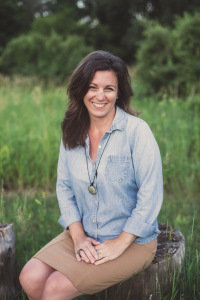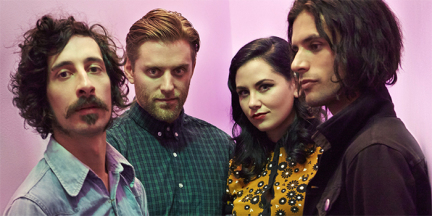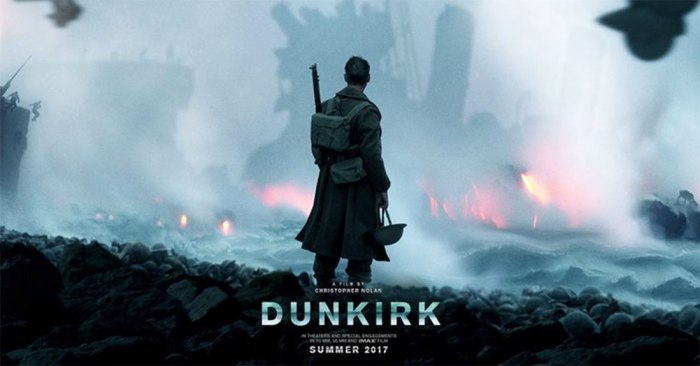
Our man went to the pictures 30 times this year and Dunkirk was the best he saw…
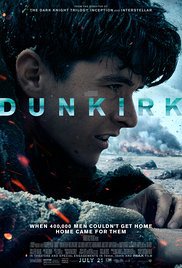 1. Dunkirk: who would have thought that director Christopher Nolan, best known for his Batman movies, could have come up with such a dramatic, atmospheric and downright mesmerising movie as this. But he did. Kenneth Branagh plays the Navy pier master, Tom Hardy is a Spitfire pilot and One Direction’s Harry Styles is a severely frightened infantryman among a group trying to find a way – any way – to escape the beach impasse. Mark Rylance is a British south coast small boat skipper, one of hundreds who crossed the channel to bring home their countrymen.
1. Dunkirk: who would have thought that director Christopher Nolan, best known for his Batman movies, could have come up with such a dramatic, atmospheric and downright mesmerising movie as this. But he did. Kenneth Branagh plays the Navy pier master, Tom Hardy is a Spitfire pilot and One Direction’s Harry Styles is a severely frightened infantryman among a group trying to find a way – any way – to escape the beach impasse. Mark Rylance is a British south coast small boat skipper, one of hundreds who crossed the channel to bring home their countrymen.
 2. Hidden Figures: it’s the 1960s and there are a lot of very bright and switched-on women working on the US space program. And they’re African Americans, segregated from the rest of the workforce and having to walk blocks to even get to their washrooms. Taraji Henson (once a detective in TV’s Person Of Interest) is a calculus and geometry whiz. Janelle Monae plays an aeronautical engineer. Alongside their colleagues, the intellectual brilliance of these women helped put a human into space and ultimately the moon.
2. Hidden Figures: it’s the 1960s and there are a lot of very bright and switched-on women working on the US space program. And they’re African Americans, segregated from the rest of the workforce and having to walk blocks to even get to their washrooms. Taraji Henson (once a detective in TV’s Person Of Interest) is a calculus and geometry whiz. Janelle Monae plays an aeronautical engineer. Alongside their colleagues, the intellectual brilliance of these women helped put a human into space and ultimately the moon.
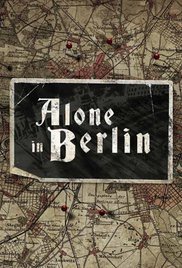 3. Alone In Berlin: how brave must a couple have been in 1940s Berlin to glue postcards to suburban and city walls urging fellow Germans to boycott Hitler’s war. But that’s what Anna and Otto Quangel (Emma Thompson and Brendan Gleeson) did after they learned their son had been killed on the Russian front. One of their 285 cards read ‘Hitler’s War Is the Worker’s Death’ leading a brutal SS officer to assign an up-and-coming civilian police inspector to lead the investigation. The SS man isn’t averse to dishing out a little bit of roughing-up and face slapping to his own countryman.
3. Alone In Berlin: how brave must a couple have been in 1940s Berlin to glue postcards to suburban and city walls urging fellow Germans to boycott Hitler’s war. But that’s what Anna and Otto Quangel (Emma Thompson and Brendan Gleeson) did after they learned their son had been killed on the Russian front. One of their 285 cards read ‘Hitler’s War Is the Worker’s Death’ leading a brutal SS officer to assign an up-and-coming civilian police inspector to lead the investigation. The SS man isn’t averse to dishing out a little bit of roughing-up and face slapping to his own countryman.
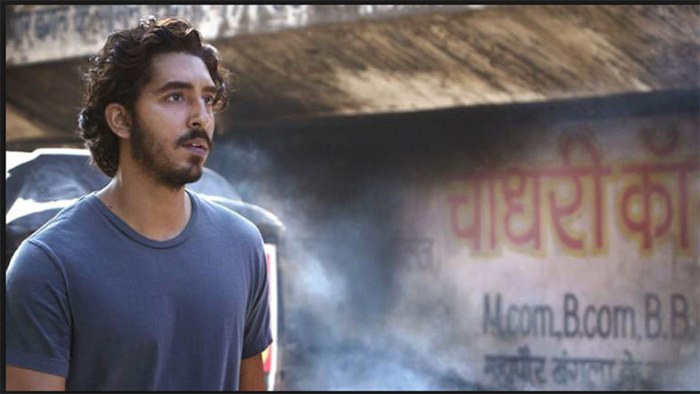 4. Lion: plenty has been said and written about this true-life story where an adult Indian man re-traces his journey from when he was a five-year-old back to the village of his birth. And he does this not from an Indian city but from the home of his adoptive parents (Nicole Kidman and David Wenham) in Tasmania, Australia. Even though I’ve nearly seen enough of Dev Patel he’s convincing enough as the adult Saroo working from Google Earth maps and his own memories to eventually re-unite with the family of his birth. Perhaps the highly emotional reunions with these remaining family members back home in India are among the best scenes of all.
4. Lion: plenty has been said and written about this true-life story where an adult Indian man re-traces his journey from when he was a five-year-old back to the village of his birth. And he does this not from an Indian city but from the home of his adoptive parents (Nicole Kidman and David Wenham) in Tasmania, Australia. Even though I’ve nearly seen enough of Dev Patel he’s convincing enough as the adult Saroo working from Google Earth maps and his own memories to eventually re-unite with the family of his birth. Perhaps the highly emotional reunions with these remaining family members back home in India are among the best scenes of all.
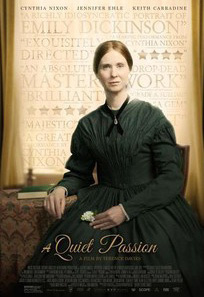 5. A Quiet Passion: Nineteenth century New England writer Emily Dickinson had barely a dozen poems published during her lifetime but since then 1,775 have remained in print. Dickinson (played with quiet dignity by Sex And The City star Cynthia Nixon) remains one of the most read American writers, along with Walt Whitman, and since 1890 book after book of hers have hit the ‘sold out’ mark. Nixon plays the poet who’s a virtual recluse in her Massachusetts family home and was just 55 when she died. It was due to the hard work of her sister who discovered stacks of notebooks after Emily’s death that her poems – odd punctuation, and all – eventually reached vast audiences
5. A Quiet Passion: Nineteenth century New England writer Emily Dickinson had barely a dozen poems published during her lifetime but since then 1,775 have remained in print. Dickinson (played with quiet dignity by Sex And The City star Cynthia Nixon) remains one of the most read American writers, along with Walt Whitman, and since 1890 book after book of hers have hit the ‘sold out’ mark. Nixon plays the poet who’s a virtual recluse in her Massachusetts family home and was just 55 when she died. It was due to the hard work of her sister who discovered stacks of notebooks after Emily’s death that her poems – odd punctuation, and all – eventually reached vast audiences
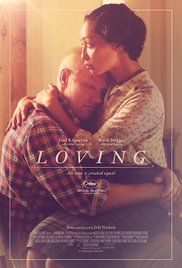 6. Loving: in 1950s Virginia a white man Richard Loving (Joel Edgerton) and his black American partner Mildred (Ruth Negga) flout all the inter-racial living together rules. So in the dead of night they flee from the South and head to Washington DC where an actual marriage can be legally sanctioned and Richard can get work in his bricklaying trade. Mildred isn’t over-keen on life in the capital so sometime later they slip back into a remote part of Virginia and await the arrival of the local rednecks. Fortunately it’s two young enterprising lawyers who turn up and after a defeat in the state Supreme Court the Loving’s case ends up in the federal Supreme Court where the lawyers seek a ruling stating prohibition of inter-racial marriage is unconstitutional.
6. Loving: in 1950s Virginia a white man Richard Loving (Joel Edgerton) and his black American partner Mildred (Ruth Negga) flout all the inter-racial living together rules. So in the dead of night they flee from the South and head to Washington DC where an actual marriage can be legally sanctioned and Richard can get work in his bricklaying trade. Mildred isn’t over-keen on life in the capital so sometime later they slip back into a remote part of Virginia and await the arrival of the local rednecks. Fortunately it’s two young enterprising lawyers who turn up and after a defeat in the state Supreme Court the Loving’s case ends up in the federal Supreme Court where the lawyers seek a ruling stating prohibition of inter-racial marriage is unconstitutional.
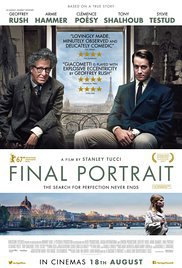 7. Final Portrait: Swiss-born artist Alberto Giacometti (Geoffrey Rush) suggests to the author of an article about him that he consents to sitting for a portrait. New York writer James Lord (Armie Hammer) is in Paris so he agrees to sit for Giacometti not realising that the sessions will drag on for days and days. So we learn about Giacometti’s fixation on model cum lover Caroline (Clemence Poesy), the artist’s steady large income from sales of his sculptures and paintings at the gallery run by his brother and his cash payments to Caroline’s pimps. It’s when Giacometti and Lord take afternoon strolls that my favourite lines are uttered. Giacometti dismisses his old colleague Picasso as “a plagiarist” and Paris Opera House dome artist Chagall as “a house painter”.
7. Final Portrait: Swiss-born artist Alberto Giacometti (Geoffrey Rush) suggests to the author of an article about him that he consents to sitting for a portrait. New York writer James Lord (Armie Hammer) is in Paris so he agrees to sit for Giacometti not realising that the sessions will drag on for days and days. So we learn about Giacometti’s fixation on model cum lover Caroline (Clemence Poesy), the artist’s steady large income from sales of his sculptures and paintings at the gallery run by his brother and his cash payments to Caroline’s pimps. It’s when Giacometti and Lord take afternoon strolls that my favourite lines are uttered. Giacometti dismisses his old colleague Picasso as “a plagiarist” and Paris Opera House dome artist Chagall as “a house painter”.
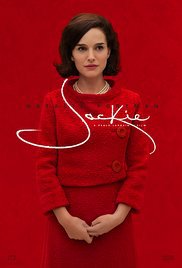 8. Jackie: we’ve all seen numerous real-life footage shots, documentaries and TV series about the shooting death of John F. Kennedy in Dallas in the early Sixties. But in Natalie Portman’s portrayal of the US First Lady we see not only the shooting but also the swearing in of Lyndon Baines Johnson as president aboard a jam-packed presidential Boeing. And of course the JFK funeral. Jackie overruled the boys-only club so she could walk behind her husband’s coffin and the fallen warrior’s riderless horse. And I didn’t know until this biopic came out what a regular, indeed heavy, smoker Jackie was. She constantly lit up and stubbed out when being interviewed in Massachusetts by a feature writer, informing him quite sternly she was “a non-smoker” for his forthcoming story.
8. Jackie: we’ve all seen numerous real-life footage shots, documentaries and TV series about the shooting death of John F. Kennedy in Dallas in the early Sixties. But in Natalie Portman’s portrayal of the US First Lady we see not only the shooting but also the swearing in of Lyndon Baines Johnson as president aboard a jam-packed presidential Boeing. And of course the JFK funeral. Jackie overruled the boys-only club so she could walk behind her husband’s coffin and the fallen warrior’s riderless horse. And I didn’t know until this biopic came out what a regular, indeed heavy, smoker Jackie was. She constantly lit up and stubbed out when being interviewed in Massachusetts by a feature writer, informing him quite sternly she was “a non-smoker” for his forthcoming story.
 9. A United Kingdom: OK, so it’s another inter-racial love story, but this time about an African soon-to-be-king of a desolate little domain known then as Bechuanaland (now Botswana) and his white English partner. In London in 1947 Seretse Khama (David Oyelowo), a law student, meets typist Ruth Williams (Rosamund Pike). He falls for her and they eventually marry, yet that’s just the start of their travails. The Attlee-led British government becomes embroiled in some shabby behind-the-scenes manipulations. Terrified that Khama’s next door neighbour South Africa will take his marriage as an affront, Foreign Office officials cringe as they weigh up South Africa’s possible defection from the Commonwealth, taking with it its vast array of gold and precious minerals channelled through British ports.
9. A United Kingdom: OK, so it’s another inter-racial love story, but this time about an African soon-to-be-king of a desolate little domain known then as Bechuanaland (now Botswana) and his white English partner. In London in 1947 Seretse Khama (David Oyelowo), a law student, meets typist Ruth Williams (Rosamund Pike). He falls for her and they eventually marry, yet that’s just the start of their travails. The Attlee-led British government becomes embroiled in some shabby behind-the-scenes manipulations. Terrified that Khama’s next door neighbour South Africa will take his marriage as an affront, Foreign Office officials cringe as they weigh up South Africa’s possible defection from the Commonwealth, taking with it its vast array of gold and precious minerals channelled through British ports.
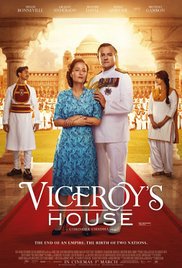 10. Viceroy’s House: I saw only a handful of Downton Abbey episodes yet I’ve always liked Hugh Bonneville. Here he’s in India as Britain’s last Viceroy – Lord Louis Mountbatten – with India’s independence (and eventual partition into two separate states) just over the horizon. Mountbatten and his minions have to adjudicate and settle tensions between Nehru (Tanveer Ghani), a Hindu and leader of the Congress Party, Jinnah (Denzil Smith) who’s the head Muslim politician with the formidable Mahatma Gandhi (Neeraj Kabi) hovering close to the discussions. It’s 1947 and India’s looming independence, not to mention the creation of a separate state of Pakistan, keeps Mountbatten focused on what seems an impossible task. Gillian Armstrong plays Lady Edwina Mountbatten although her famous infidelities – most notably with Nehru – are diplomatically sidestepped.
10. Viceroy’s House: I saw only a handful of Downton Abbey episodes yet I’ve always liked Hugh Bonneville. Here he’s in India as Britain’s last Viceroy – Lord Louis Mountbatten – with India’s independence (and eventual partition into two separate states) just over the horizon. Mountbatten and his minions have to adjudicate and settle tensions between Nehru (Tanveer Ghani), a Hindu and leader of the Congress Party, Jinnah (Denzil Smith) who’s the head Muslim politician with the formidable Mahatma Gandhi (Neeraj Kabi) hovering close to the discussions. It’s 1947 and India’s looming independence, not to mention the creation of a separate state of Pakistan, keeps Mountbatten focused on what seems an impossible task. Gillian Armstrong plays Lady Edwina Mountbatten although her famous infidelities – most notably with Nehru – are diplomatically sidestepped.
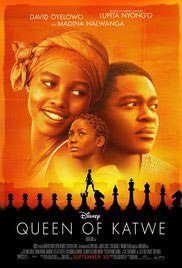 11. Queen of Katwe: an illiterate girl from the slums of Kampala in Uganda conquers every obstacle to become a national chess champion. As Phiona, Madina Nalwanga plays a brilliant part as does her tough mother (Oscar winner Lupita Nyong’o) as they struggle to keep their battling family together. David Oyelowo is again to the fore as a dedicated missionary who teaches the slum children how to play chess. Phiona not only goes on to become chess champion of her immediate area and ultimately an all-Ugandan gold medallist she even travels to a freezing, snow-covered Russia to compete in an international tournament, representing Uganda.
11. Queen of Katwe: an illiterate girl from the slums of Kampala in Uganda conquers every obstacle to become a national chess champion. As Phiona, Madina Nalwanga plays a brilliant part as does her tough mother (Oscar winner Lupita Nyong’o) as they struggle to keep their battling family together. David Oyelowo is again to the fore as a dedicated missionary who teaches the slum children how to play chess. Phiona not only goes on to become chess champion of her immediate area and ultimately an all-Ugandan gold medallist she even travels to a freezing, snow-covered Russia to compete in an international tournament, representing Uganda.
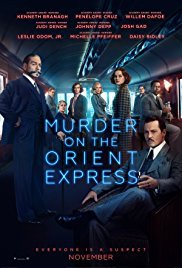 12. Murder On The Orient Express: this is Kenneth Branagh’s take on the classic Agatha Christie murder mystery. And not only does Branagh play the pivotal part of detective Hercule Poirot he’s also the director. Brad Pitt is believable as the crook Ratchett (murdered in his own bed, of course) while Michelle Pfeiffer is delicious as the man-hungry Caroline Hubbard. He’s not quite as good as Albert Finney or TV’s David Suchet, but as Poirot the bountifully moustachioed Branagh does a pretty decent job. I’m a big fan of Agatha Christie incarnations on screens big and small, so that’s probably why I’ve placed the Branagh movie in my Top Twelve. Other film critics probably won’t.
12. Murder On The Orient Express: this is Kenneth Branagh’s take on the classic Agatha Christie murder mystery. And not only does Branagh play the pivotal part of detective Hercule Poirot he’s also the director. Brad Pitt is believable as the crook Ratchett (murdered in his own bed, of course) while Michelle Pfeiffer is delicious as the man-hungry Caroline Hubbard. He’s not quite as good as Albert Finney or TV’s David Suchet, but as Poirot the bountifully moustachioed Branagh does a pretty decent job. I’m a big fan of Agatha Christie incarnations on screens big and small, so that’s probably why I’ve placed the Branagh movie in my Top Twelve. Other film critics probably won’t.
Disappointments – 1. Victoria And Abdul: with the great Judi Dench playing the formidable 19th century Queen (also the Empress of India) I thought this would be ripping viewing. But it turned out to be a bit of a fizzer with Eddie Izzard the rescuer. He played the frustrated, bitter and long-serving Bertie, the Prince of Wales, who’d been waiting in the wings for a decade or three and just aching to assume the royal mantle. He nailed it.
2. Allied: with Brad Pitt and Marion Cotillard as impeccably dressed WW2 spies what could go wrong? Well, plenty actually. Not much happens after a shoot-out in the Nazi German embassy in Casablanca where Max and Marianne use their sub-machine guns (taped to the underside of a catering table) to blast soldiers, diplomats and guards. Back in London after a hasty marriage Max is informed by British spooks his wife is, in fact, a double agent: a German spy. Under WW2 protocol he’s supposed to assassinate her. But will he?
3. Churchill: Brian Cox tried his darnedest to shine as the great British PM yet the central premise that he tussled repeatedly with Supreme Allied Commander General Eisenhower and his own Field Marshall ‘Monty’ Montgomery about the timing and logistics of the D-Day landing at Normandy is completely erroneous. He might have disagreed about details with the two mighty Army men but to try and suggest there was open hostility is just plain wrong, and a revision of history. Contrast Cox’s portrayal with that of an assured John Lithgow as Churchill in the Netflix series, The Crown.
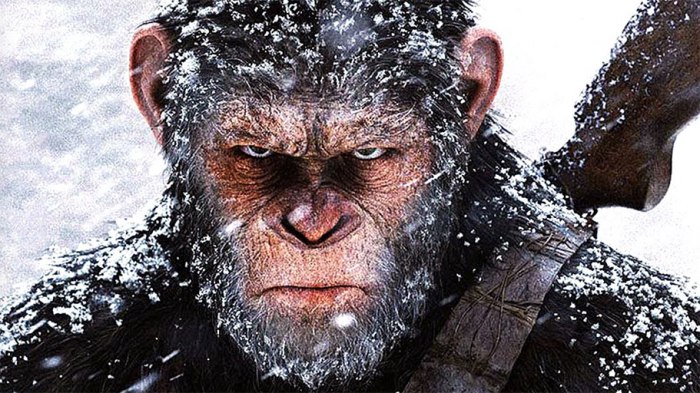 Quirky favourites: I’m not a fan of sci-fi, Tolkien ramblings about Middle Earth, Harry Potter frippery or Star Wars epics (and studiously avoid all of them) but there’s two exceptions I always make. One is for the latest King Kong outing and the other is for the Planet Of the Apes franchise, preferably where the chimpanzees have mastered English. Although in the latest Apes episode only the boss Caesar (Andy Serkis), and one other are fluent in the language. But at least the simians, particularly the very large gorillas and orang-utans, look like real monkeys: faces, teeth, hands, no clothes. Not humans wearing monkey-like masks as in the Charlton Heston series. In Kong: Skull Island the protagonist is simply ginormous. It’s set just after the Vietnam War so the Samuel L Jackson US army character leads his troops through the final resting places of Kong’s forbears (hence the Skull Island sub-title) while former British SAS officer Tom Hiddleston does more exploring than actually encouraging confrontation. And Kong’s final showdown is not with an actual T-Rex dinosaur, but what appears to be a T-Rex-sized goanna with a massive tongue. Not sure why I like fantasy movies starring monkeys but I think it dates back to my teenage years and a viewing in a Geelong cinema of the original 1933 King Kong epic, starring Fay Wray. They were screening a sort of look-back-at-the past series – all in black and white. And I was hooked on Kong.
Quirky favourites: I’m not a fan of sci-fi, Tolkien ramblings about Middle Earth, Harry Potter frippery or Star Wars epics (and studiously avoid all of them) but there’s two exceptions I always make. One is for the latest King Kong outing and the other is for the Planet Of the Apes franchise, preferably where the chimpanzees have mastered English. Although in the latest Apes episode only the boss Caesar (Andy Serkis), and one other are fluent in the language. But at least the simians, particularly the very large gorillas and orang-utans, look like real monkeys: faces, teeth, hands, no clothes. Not humans wearing monkey-like masks as in the Charlton Heston series. In Kong: Skull Island the protagonist is simply ginormous. It’s set just after the Vietnam War so the Samuel L Jackson US army character leads his troops through the final resting places of Kong’s forbears (hence the Skull Island sub-title) while former British SAS officer Tom Hiddleston does more exploring than actually encouraging confrontation. And Kong’s final showdown is not with an actual T-Rex dinosaur, but what appears to be a T-Rex-sized goanna with a massive tongue. Not sure why I like fantasy movies starring monkeys but I think it dates back to my teenage years and a viewing in a Geelong cinema of the original 1933 King Kong epic, starring Fay Wray. They were screening a sort of look-back-at-the past series – all in black and white. And I was hooked on Kong.
Advertisements Share this:
